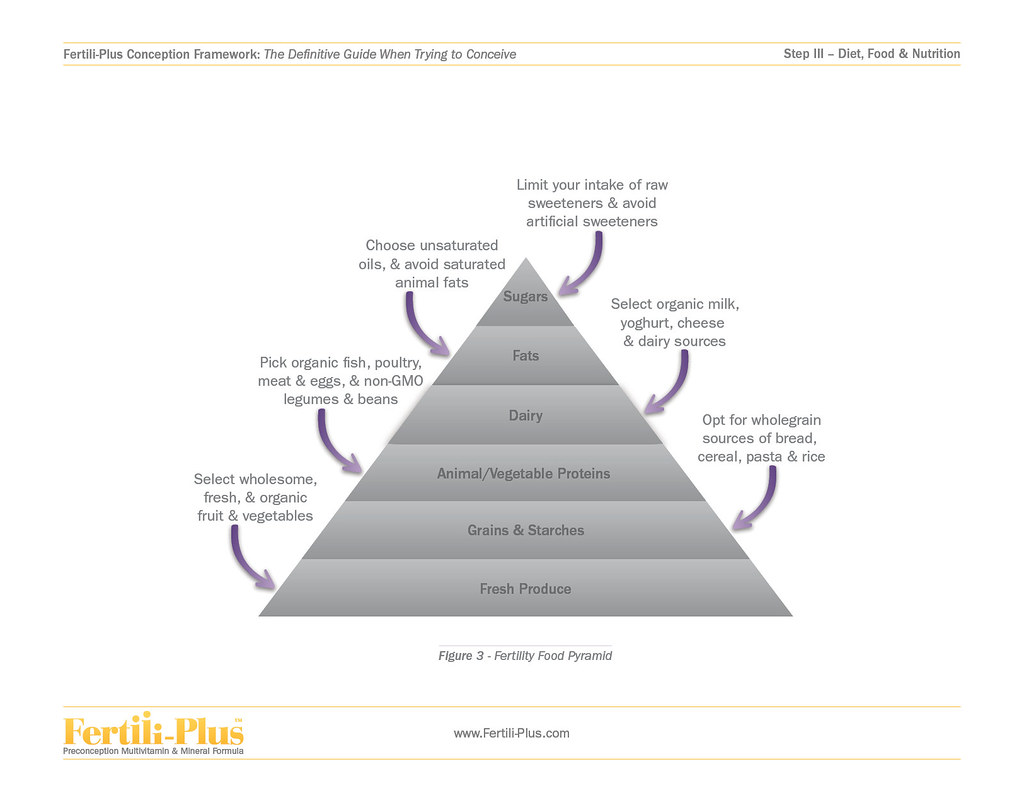What is Affiliate Marketing and Pyramid Schemes?
Affiliate marketing is a legitimate online business model where individuals promote a company’s products or services in exchange for a commission on sales or referrals. It is an industry that has gained a lot of popularity in recent years, with an estimated 81% of brands and 84% of publishers using affiliate marketing programs in 2021.
On the other hand, pyramid schemes are illegal in many countries and are often confused with affiliate marketing. Pyramid schemes are fraudulent scams that involve recruiting new members to make money, rather than selling actual products or services. In a pyramid scheme, participants are promised high returns for bringing in new members, but in reality, only a few individuals at the top of the pyramid actually make any money. Eventually, the pyramid collapses, leaving most participants with significant financial losses.
Understanding the differences between affiliate marketing and pyramid schemes is crucial for anyone looking to earn money online. In the following sections, we will explore the characteristics of affiliate marketing and pyramid schemes in more detail, and explain why affiliate marketing is a legitimate business model that can provide long-term success.

What is affiliate marketing, exactly?
An affiliate (a person or business) promotes a company’s goods or services and receives a commission on sales or referrals as part of the performance-based online marketing strategy known as affiliate marketing. Typically through a website, blog, or social media platform, the affiliate is a salesperson who markets the good or service to their audience.
Howiliate marketing functions
The merchant, the affiliate, the customer, and the affiliate network are the four main players in the affiliate marketing procedure. The procedure is as follows:
- The company that produces and markets the goods or services is known as the retailer.
- The affiliate is the person or business that markets the good or service to their audience and receives a commission from sales or referrals.
- The customer: The person who purchases the good or service using the affiliate’s distinctive referral link.
- The affiliate network is the platform that links merchants and affiliates and tracks sales and commissions.
Through a special referral link provided by the merchant, the affiliate markets the good or service to their audience. Affiliates receive a commission from the sale when a customer clicks on the link and makes a purchase. Affiliates are paid for their referrals and the affiliate network tracks the sales and commissions.
The Advantages of affiliate marketing
Both the business and the affiliate marketer gain from affiliate marketing in a number of ways. The main benefits are listed below:
–Low costs Affiliate marketing is a low-cost business model that only requires a small investment. Affiliates don’t need a physical store or inventory to promote goods or services on a website or social media platform.
-Low risk: Since affiliates do not need to invest significant amounts of money in the business, the risk is relatively low. Affiliates can test various goods and niches without running the risk of suffering a sizable financial loss.
-High ROI: Since affiliates receive a commission on every sale they make, affiliate marketing can offer a high return on investment. Affiliates who are successful can make a sizable living through affiliate marketing.
– High-quality leads: Since affiliates typically market goods or services to a target market that is already interested in the niche, affiliate marketing can offer businesses high-quality leads.
-Long-term success Both the business and the affiliate can benefit from affiliate marketing over the long term. Affiliates can generate a consistent income over time, while businesses can develop a network of devoted affiliates who advertise their goods or services.
The Growth and Success of affiliate marketing: Statistics
In recent years, affiliate marketing has experienced significant growth. By 2022, affiliate marketing spending in the US is anticipated to reach $8.2 billion, according to a study by Forrester [https://www.postaffiliatepro.com/blog/affiliate-marketing-scams-to-avoid]. Affiliate marketing programs are also widely used by [81% of brands and 84% of publishers]. These figures show the rising acceptance of affiliate marketing as a viable business model.
Pyramid Schemes Explained
Pyramid schemes are illegal frauds that have been around for decades and have caused significant financial losses for individuals and companies. They are often confused with legitimate business models such as affiliate marketing, but they are fundamentally different. Here’s what you need to know about pyramid schemes:
Definition and Explanation of Pyramid Schemes
A pyramid scheme is a fraudulent business model that involves recruiting new members to make money, rather than selling actual products or services. In a pyramid scheme, participants are promised high returns for bringing in new members, but in reality, only a few individuals at the top of the pyramid actually make any money. Eventually, the pyramid collapses, leaving most participants with significant financial losses.
Pyramid schemes are often disguised as legitimate business opportunities, and participants are encouraged to recruit friends and family members to join the program. They are usually structured in a hierarchical manner, with the person at the top of the pyramid earning the most money.
How Pyramid Schemes Work
In a pyramid scheme, participants are required to make an initial investment to join the program. They are then encouraged to recruit new members, who also have to make an investment to join. The more members a participant recruits, the more money they can make.
Participants are promised high returns on their investment, but the money usually comes from the investments made by new members. As the pyramid grows, it becomes harder to recruit new members, and eventually, the pyramid collapses, leaving most participants with significant financial losses.
Why Pyramid Schemes Are Illegal
Pyramid schemes are illegal in many countries because they are fraudulent and unethical. They often target vulnerable individuals who are looking to make money quickly, and they can cause significant financial harm.
Additionally, pyramid schemes are unsustainable, as they require an infinite number of new members to keep the pyramid growing. Eventually, the pyramid collapses, leaving most participants with significant financial losses.
Statistics on the Prevalence and Impact of Pyramid Schemes
Pyramid schemes have been around for decades and have caused significant financial losses for individuals and companies. According to a report by the Federal Trade Commission, pyramid schemes cost consumers in the US around $2.5 billion each year. These statistics highlight the impact of pyramid schemes on individuals and the importance of understanding the difference between pyramid schemes and legitimate business models such as affiliate marketing.

Affiliate Marketing vs Pyramid Schemes
While affiliate marketing and pyramid schemes may seem similar on the surface, they are fundamentally different. Here are some of the key differences between the two:
Focus on Selling Products vs Recruiting Members
The primary distinction between affiliate marketing and a pyramid scheme is that the former concentrates on the sale of a good or service, while the latter does so through the recruitment of new participants. Affiliate marketing involves promoting a company’s products or services to a targeted audience, with the aim of earning a commission on sales or referrals. In contrast, pyramid schemes involve recruiting new members to the program, with the aim of earning money from their investments.
Legitimacy and Longevity
Affiliate marketing is a legitimate business model that has been around for decades and is used by many companies and individuals to earn money online. In contrast, pyramid schemes are illegal in many countries and are often shut down by authorities. Additionally, pyramid schemes are unsustainable and usually collapse within a short period of time, leaving most participants with significant financial losses.
Transparency and Ethics
Affiliate marketing programs are usually transparent and straightforward about the payment plans and commission rates. They also provide affiliates with marketing materials and support to help them promote the products or services effectively. In contrast, pyramid schemes often rely on deception and false promises to recruit new members and make money. They are unethical and take advantage of vulnerable individuals who are looking to make money quickly.
Risks and Rewards
Affiliate marketing involves a relatively low risk and can provide a high return on investment if done correctly. Successful affiliates can earn a significant income over time while providing high-quality leads to companies. In contrast, pyramid schemes involve a high risk and usually result in significant financial losses for most participants.
Conclusion
In conclusion, affiliate marketing and pyramid schemes are fundamentally different business models. Affiliate marketing is a legitimate and long-term method of making money online, while pyramid schemes are fraudulent and unsustainable. It is essential to understand the differences between the two and avoid pyramid schemes to protect yourself from financial harm.

How to Spot a Pyramid Scheme
Pyramid schemes can be difficult to spot, as they often disguise themselves as legitimate business opportunities. However, there are some warning signs that can help you identify a pyramid scheme. Here are some key indicators to look out for:
Focus on Recruitment
One of the primary signs of a pyramid scheme is a focus on recruitment rather than selling products or services. If the business opportunity requires you to recruit new members to make money, it is likely a pyramid scheme. Legitimate business models such as affiliate marketing focus on selling products or services to a targeted audience.
Promise of High Returns
Pyramid schemes often promise high returns on investment, with little or no effort required. If the business opportunity sounds too good to be true, it probably is. Legitimate business models such as affiliate marketing require hard work and dedication to be successful.
Initial Investment Required
Pyramid schemes usually require an initial investment to join the program. If you are asked to pay a significant amount of money upfront to participate in the business opportunity, it is likely a pyramid scheme. Legitimate business models such as affiliate marketing usually have low start-up costs.
Lack of Transparency
Pyramid schemes often lack transparency and provide little information about the business opportunity or the people behind it. If you are unable to get clear answers to your questions or the company is not transparent about its payment plans and commission rates, it is likely a pyramid scheme.
Conclusion
In conclusion, pyramid schemes can be difficult to spot, but there are warning signs that can help you identify them. If a business opportunity requires you to recruit new members to make money, promises high returns with little effort, requires a significant initial investment, or lacks transparency, it is likely a pyramid scheme. It is essential to do your research and avoid pyramid schemes to protect yourself from financial harm.
How to Avoid Affiliate Marketing Scams
While affiliate marketing is a legitimate business model, scammers often use it to take advantage of people and cost businesses a lot of money. Here are some tips to help you avoid affiliate marketing scams:
Research Affiliates
Before signing up for an affiliate program, research the company and its products or services. Make sure the company is reputable and has a good track record. Check reviews and testimonials from other affiliates to see if they have had success with the program.
Use an Affiliate Tracking Solution
To avoid scams, use an affiliate tracking solution with fraud protection features. Look for a solution that provides real-time tracking, fraud detection, and commission payouts. Post Affiliate Pro is an affiliate tracking solution that offers these features and a free trial.
Avoid Get-Rich-Quick Schemes
Avoid affiliate programs that promise to make you rich quickly with little or no effort. Legitimate affiliate programs require hard work and dedication to be successful. If the program sounds too good to be true, it probably is.
Be Wary of Fake Products or Services
Be cautious of affiliate programs that promote fake products or services. Scammers often use these programs to take advantage of people and make money quickly. Make sure the products or services are legitimate and have value to your audience.
Conclusion
In conclusion, affiliate marketing is a legitimate business model, but scammers use it to take advantage of people and cost businesses a lot of money. To avoid scams, research affiliates, use an affiliate tracking solution with fraud protection features, avoid get-rich-quick schemes, and be wary of fake products or services. By following these tips, you can protect yourself from affiliate marketing scams and build a successful and profitable business.

Wrapping Up
In summary, affiliate marketing is not a pyramid scheme, but a legitimate business model that involves promoting a company’s products or services in exchange for a commission on sales or referrals. While pyramid schemes focus on the recruitment of new participants, affiliate marketing focuses on selling products or services to a targeted audience.
To avoid affiliate marketing scams, it is essential to research affiliates, use an affiliate tracking solution with fraud protection features, avoid get-rich-quick schemes, and be wary of fake products or services.
At Good Money Site, we are committed to providing you with valuable content on affiliate marketing and other online business models. Check out our other great articles on our website and start building a successful and profitable online business today!
Thank you for reading!
Questions
Q: What is affiliate marketing?
A: Affiliate marketing is a legitimate business model that involves promoting a company’s products or services in exchange for a commission on sales or referrals.
Q: How is affiliate marketing different from a pyramid scheme?
A: Affiliate marketing focuses on selling products or services to a targeted audience, while pyramid schemes focus on the recruitment of new participants.
Q: Who can participate in affiliate marketing?
A: Anyone can participate in affiliate marketing, regardless of their background or experience. All that is required is a willingness to learn and work hard.
Q: What are the benefits of affiliate marketing?
A: Affiliate marketing has low costs, low risk, high ROI, and can earn individuals a lot of money while providing high-quality leads.
Q: How do I find a reputable affiliate program?
A: Research the company and its products or services, check reviews and testimonials from other affiliates, and look for programs that are transparent about their payment plans and commission rates.
Q: Isn’t affiliate marketing just a scam?
A: No, affiliate marketing is a legitimate business model that can provide a long-term and sustainable source of income when done correctly. However, it is important to avoid scams by doing your research and being cautious of get-rich-quick schemes.
